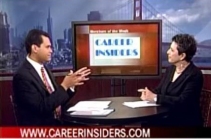 At some time in their careers, most people come to a point when they’re so unhappy with their jobs that they want to make drastic changes in their careers, “I don’t want to do this anymore. I need a change!”
At some time in their careers, most people come to a point when they’re so unhappy with their jobs that they want to make drastic changes in their careers, “I don’t want to do this anymore. I need a change!”
It’s true that many aren’t cut out for their current careers or find they have a strong passion for another field, and should be making efforts to take on something new. However, most of the time, they can achieve change, and job satisfaction, without taking such drastic action.
It is essential for someone in this situation to dig deep to discover the real reason s/he is unhappy before proceeding down a path to change careers. Accordingly, a career coach or counselor should initiate such a conversation before proceeding to help her/his client pursue a new career path.
Keep in mind that organizations hire you because you’ve proven from your experience and achievements that you can be successful in their organization…not for what you think you can do. This is especially true today’s tight job market.
How do you know?
Ask yourself, “What is the primary reason you are unhappy?” ( “Burned out” is not a reason.)
- Are you not getting enough recognition/respect from your manager? Upper management? Your colleagues?
- Are you not getting paid enough…or what you think you should be getting?
- Are you working too many long days, nights, and weekends?
- Are you required to travel much more than you’d like?
- Are you commuting much more than you’d like?
- Do you have the necessary skills and/or tools to be successful?
- Are you spending too much of your time doing tasks that you hate?
- Do you have ethical or moral conflicts with your manager or the company?
Then ask yourself:
- If I could change anything about my job what would it be?
- Is there a realistic chance of getting this change made?
There are several options to take before giving up entirely on your current career.
- Have a conversation with your manager and ask if there is a way to get what you need.
- Look for other opportunities in the same company.
- Look for similar opportunities in a different company, industry, or location.
As Barbara Safani, owner of a NY career management firm, said in a New York Times article a while back, ’A lot of people who say that they hate what they do actually hate who they do it for.
If after doing this analysis, you still feel strongly about pursuing another career, perform your due diligence. Thoroughly research the field and talk to people in the field to learn what it’s really like.
- What education or skills do I need to acquire?
- What are the costs involved – financial, time, other?
- Can I afford these costs?
- Am I willing to start at the bottom again?
 Hi I’m Mauri, President/CEO of Career Insiders, a career management and talent acquisition consulting firm. I speak frequently at conferences, job fairs, and career panels. My favorite client update is, “I did everything you told me to and I got the job!”
Hi I’m Mauri, President/CEO of Career Insiders, a career management and talent acquisition consulting firm. I speak frequently at conferences, job fairs, and career panels. My favorite client update is, “I did everything you told me to and I got the job!”
Career Insiders’ Talent Acquisition services are focused on executive and senior management level positions in sales/marketing, finance, corporate legal, and HR. Please contact me for more info.










